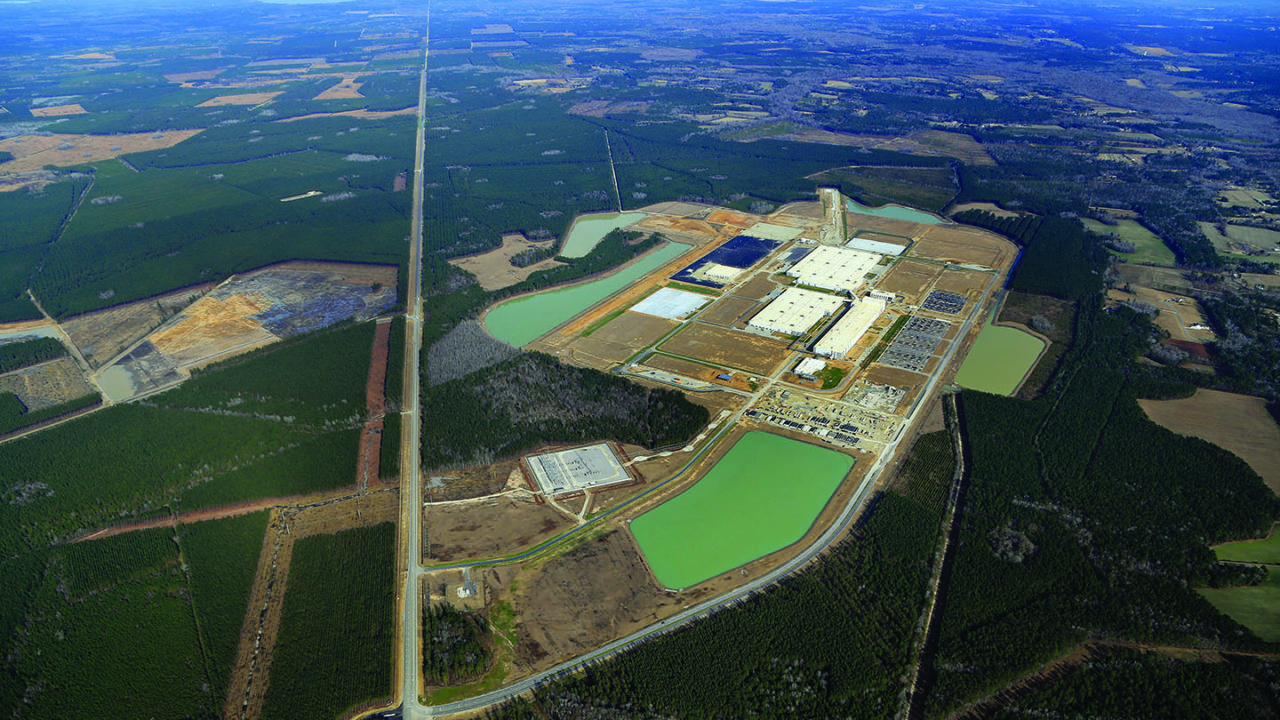Berkeley County in line for historic industrial announcement, but at a cost
A project that would rank as the biggest single industrial investment in South Carolina history is planned for the Lowcountry, but to land the deal Berkeley County will have to spend $110 million on improvements to one of the roads leading to the manufacturer’s proposed site.
Berkeley County Council on Nov. 28 moved forward with property tax breaks for the unidentified company, which said it will invest $3.5 billion and employ 1,500 workers at the Camp Hall Commerce Park off Interstate 26.
The deal would more than double the state’s previous largest investment — BMW’s announcement last month that it will spend $1.7 billion on an electric-vehicle battery plant and upgrades to its Upstate campus to make battery-powered cars.
The name of the manufacturer has not been disclosed. It initially went by the code name Project Drift, and Councilman Josh Whitley promised residents during an Oct. 24 meeting that the company would be identified by the time property tax breaks and other financial incentives were given their second of three needed approvals. Instead, the manufacturer is now going by Camp Hall Campus 3 LLC under state corporation laws that can be used to hide a company’s true ownership.
That prompted Whitley to vote against the tax breaks at the Nov. 28 meeting.
“I believe it’s important for us that we announce projects by second reading, what they are and what the taxpayers will be looking at,” Whitley said, adding he will vote against the incentive again when it comes up for a final approval if the company continues to operate under a corporate alias.
“I’m for the project, I think it’s a good thing … but it’s hard for me to take a position for seven years (on council) and require transparency on what projects are by second reading,” he said. “As exciting as this is … our responsibility here is good government and I think the project, what it is, should be known at this point.”
One of the sticking points when Project Drift came before the council last month was a requirement that the county spend $110 million on improvements to S.C. Highway 176 in order for the manufacturer to agree to locate there. Councilman Tommy Newell said on Oct. 24 that the requirement was a deal breaker for him, and Councilmen Jack Schurlknight and Steve Davis said they might vote against the measure if the state does not kick in some money for the improvements.
None of those councilmen responded to a request for comment, and Newell was the only other council member to vote against the tax breaks. Final approval could come as early as Dec. 12.
It’s not clear where the county would come up with the $110 million. That amount is roughly half of all the money that’s been raised by a 1 percent sales tax increase Berkeley voters approved in 2014. Although an extension of the tax was approved in November, most of the money that will be raised by it has already been earmarked for other projects.
Another question is where the company would get its workforce of 1,500 employees. Some of the Charleston area’s biggest manufacturers — including Boeing Co., Volvo Cars and Mercedes-Benz Vans — are already experiencing a worker shortage, and Berkeley County has one of the state’s lowest unemployment rates at 3.5 percent, according to the S.C. Department of Employment and Workforce.
The company’s corporate alias is a reference to a parcel at Camp Hall, an industrial park owned and marketed by state-owned utility Santee Cooper. The “Campus 3” tract, which is adjacent to the existing Volvo Cars plant, has 607 developable acres with rail access and utilities in place. The site can be accessed off Volvo Car Drive via an interchange on Interstate 26 or Highway 176.
Santee Cooper spokeswoman Mollie Gore said Campus 3 has not yet been sold, but the industrial park’s website shows a sale is pending.
The record-breaking investment would come just weeks after BMW’s announcement of an electric vehicle push with a nearby battery plant in partnership with Japan-based Envision AESC. It’s the first of what could be several battery plants for South Carolina’s growing electric vehicle industry.
The 6,800-acre Camp Hall park was created after Volvo announced in 2015 that it would build its only U.S. manufacturing plant at the site near Ridgeville. The Swedish automaker will begin production next year on its first all-electric car — the EX90 sport-utility vehicle that eventually will replace the gas-powered XC90. The Volvo plant will also produce an electric sedan for sister brand Polestar.
The automaker has not said where it will get the batteries needed for those vehicles.

